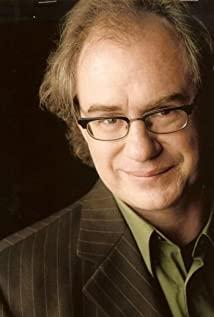Haven't watched the previous one. Just say this one.
There's something odd about Isable's approach, and it's a freedom that amazes me. Isable accidentally discovered the true identity of the professor, should he let the professor stand up and guide everyone? She has not experienced the past. If she has found out the identity of the professor, why not check what the professor has done before? What is the role of professors in each decade, and why are professors reluctant to stand up? A series of questions seems to be premature, let's talk about Professor Yang first.
The professor said, "I'm a teacher, not a preacher." It means that the professor has always stood in the perspective of a teacher, to learn, to teach people, he is not saving the world, he is just trying to guide his students to establish a correct The concept, people should continue to learn, get rid of the old and welcome the new. It can also be seen from the conversation between the professor who was tied to the chair and Philip that he did not go on a mission. He explained what he knew on the hills of Galilee. When writing the Gospel, some people regarded him as a Savior, this is the same as Isable's approach, and also wants the professor to stand up and be the savior. A professor like Isable who tries to think of a professor as a savior should have the view that he has 14,000 years of experience, a wealth of knowledge, and unparalleled experience of people, and he has the ability to guide people, the ability to tell People are right and wrong. People like them believe in a person's accumulation of 14,000 years, and they voluntarily regard the professor as their belief, rather than belief in themselves. When Yang was in class, he mentioned Buddha and Jesus. Obviously, this passage was not arranged by accident. Buddha never claimed to be a god, just an ordinary person, just thinking hard about the human condition for a long time, and when Philip mentioned that Jesus claimed to be the son of God, Yang pointed out his problem: you can only understand You can prove things that God cannot prove logically or rationally. And the next two sentences seem to imply: "Aquinas said, you ask, and you will get it. And Kiergaard said we must transcend faith." This also seems to be telling people to believe in themselves. This line puts the previous Philip and Isable into one category. They both try to use others as beliefs and as salvation. They both want to use what they already have to warn themselves, hoping to guide their behavior. And they are not willing to find their own way, to think about how to do it by themselves. Everyone has pain, troubles and sorrows, poured out on the so-called saints in order to escape. When I look back on it, this line always feels a little special. He tells you that Buddha is an ordinary man, and Jesus, to those who believe in him, is God, and to those who do not, he is also an ordinary man. They are all equally extraordinary, extraordinary in their different spiritual realms.
The flaw in the film is that it selects a student who tries to take the professor as a belief as the person who discovers his identity. This reaction is too extreme and seems to reflect a religious issue (I don’t understand this), very much like explaining religious belief. A phenomenon by which to satirize. And normal people don't understand what a believer's thinking is going to be like. From the conversation between Isable and Philip, and the conversation between the four of them before the professor was about to leave, I came to a general conclusion: people desperately want to solve their own pain, want to escape, let others do it, and Jesus suffered for others. Probably means this.
There is a place to think deeply. The professor said that he couldn't feel his vitality anymore, not like before. Kittrith's line here is: IF you insist on stomping around the woods like a cave man, i suppose it's a better mid-life-crisis thing to do than buy a motorcycle and taking off with some student. Here and at the end of the FBI's The question is consistent, the professor is likely to be a serial killer, and Kitatrix also knows the identity of the professor, which can be seen from the professor leaving and Beatrice knowing that he will not come back. Judging from the shaping of the entire film, it is obvious that the professor will not take the initiative to kill, even if it is to forge his identity. Otherwise, Professor Jenkins, the old lady from Pennsylvania, and Kittrith, as well as the acquaintances in the college, this If a group of people come down to the relevant departments to investigate, it will also be a great problem. In the original conjecture, I thought that the killer was someone else, maybe someone with the same vitality as Yang for 14,000 years, but the FBI's inquiries by name undoubtedly denied this conjecture. Maybe the professor did it, but because of the uncertainty of the truth, no one can be sure whether the professor killed someone or was framed.
View more about The Man from Earth: Holocene reviews











